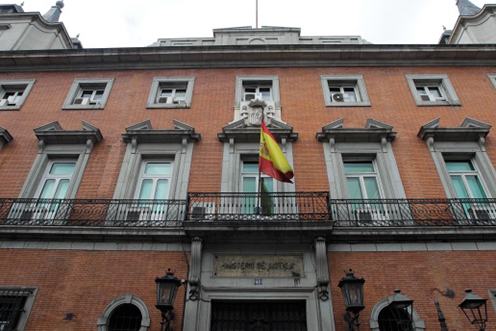State Legal Services asks Supreme Court to uphold appeal by Oriol Junqueras and allow him to take his seat as MEP
News - 2019.12.30
The State Legal Services in the "procés" case consider that he "could be allowed" to go both to the Central Election Board and to the European Parliament in order to take the procedural steps required.
In the petition it presented, the body has also requested that the Criminal Division allow Oriol Junqueras to exercise his representative duties while he remains an MEP, in accordance with the judgement of the Court of Justice of the European Union (CJEU) of 19 December, in response to the pre-trial issue of the scope of his immunity raised by the Spanish court.
The State's Legal Services also request the Supreme Court to adopt the means it considers best to guarantee that Oriol Junqueras can perform his parliamentary tasks, and also to ensure compliance with the Supreme Court's judgment of 14 October (on the "procés" case). The State Lawyer's Office considers this judgement to be fully valid as it was passed "in strict observance of the essential rules of criminal procedure".
For this reason, the State Legal Services call on the Spanish Supreme Court to request "as soon as possible" the European Parliament to suspend the immunity of Oriol Junqueras which has been recognised by the CJEU and apply the procedure included in the judgment of 19 December.
The State Legal Services recall that the Supreme Court has admitted in a number of its rulings that Oriol Junqueras could continue to have some kind of immunity if it is recognised by the CJEU. In fact, in a petition sent to Luxembourg on 14 October, the Criminal Division accepted the effectiveness of the judgment of the CJEU, although the former Vice-President of the Regional Government of Catalonia was no longer being held in remand and was now serving out his sentence.
After studying the CJEU judgment, the State Legal Services have come to the conclusion, in line with its writ of 10 June, that Oriol Junqueras continues to enjoy immunity as an MEP, given that so far the Central Election Board, which is the body with powers to decide on matters related to the announcement of candidates for the elections to the European Parliament, has not decided on the incompability of the sentence against him with his condition as elected MEP.
The effects of immunity
The State Legal Services stress that the European court judgment gives a number of pointers to understanding the effects that could be produced by the immunity recognised in the case of Oriol Junqueras. In its petition, it considers that according to the CJEU's judgment the effects of immunity must not be limited to allowing the elected MEP to go to the European Parliament and take up his seat; but that the purpose of the expressly recognised immunity is for the members of this Parliament to be able to "perform their tasks", under Article 343 of the Treaty on the Functioning of the European Union (TFEU) referred to by the CJEU.
According to the State Legal Services, the Supreme Court must decide on the form in which it can be possible for Oriol Junqueras to perform his tasks, not limited solely to his ability to move, but implying the "performance of his representative function while he retains his parliamentary status".
A "novel and complex" legal doctrine
The petition recalls that European law forms part of the legal systems of the Member States, which are obliged to respect it, as it has primacy over national law. This means that in case of a conflict between a national law and a provision or act of a European Institution, the national legal bodies must apply the European provision.
The State Legal Services call the CJEU's new case law on the immunity of MEPs "novel and complex". It also notes that the CJEU judgement may lead to the conclusion that the action of the Supreme Court has followed European case law so far. It further maintains that the Spanish Supreme Court's action in raising the pre-trial issue "was a correct exercise of the powers of the national legal body to guarantee a uniform interpretation of the law in the EU."
Non official translation





